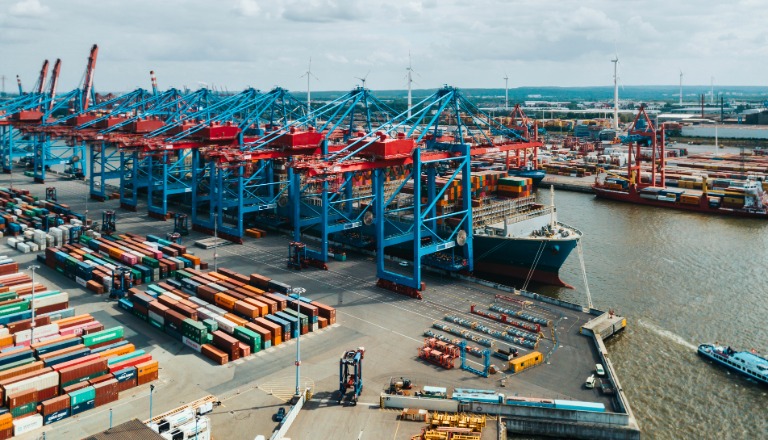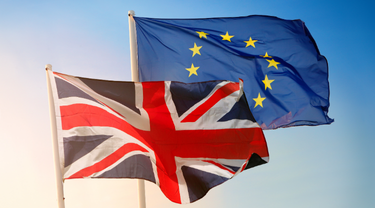
Exporting to the United Kingdom: Opportunities, challenges and support
Author details
Janet Wilson
Senior international trade writer
In this article:
Canada and the United Kingdom (U.K.) share more than a monarch—they share a deep-rooted partnership built on democratic values, open markets and a commitment to sustainable growth. This enduring alliance has evolved into a dynamic economic relationship, bolstered by the Canada-U.K. Trade Continuity Agreement (TCA), which preserves preferential access and eliminates tariffs on 98% of Canadian exports to the U.K.
It’s also a relationship rich in possibility. Between 2023 and 2024, the total value of economic trade between the U.K. and Canada grew by 15% to $559 billion. The U.K. is now Canada’s second-largest trading partner, with $40.2 billion in exported goods and services.
Strategic trade priorities and bilateral agreements
With both nations prioritizing innovation, clean technology and digital trade, greater collaboration is on the horizon. From critical minerals to artificial intelligence (AI) and quantum technologies, recent joint initiatives between Canada and the U.K. signal a shared ambition to lead in the global economy.
The U.K.’s 2025 trade strategy outlines an agile, service-driven approach that favours targeted trade deals over broad and complex free trade agreements (FTAs). In a joint statement, Canada and the U.K. reaffirmed their commitment to expanding the TCA, aiming to remove market barriers and strengthen co-operation in areas such as semiconductors, photonics, emerging materials and chip design to build more resilient supply chains.
The two countries have also agreed to bilateral co-operation on critical minerals, infrastructure and the development of production and processing capacity.
You should also check out
How Canadian exporters can reduce trade risks and successfully enter high-growth European markets.
Key export opportunities for Canadian exporters in the U.K.
The U.K. is a traditional consumer of Canadian exports such as seafood ($51.31 million in 2024) and a forward-looking partner in the cleantech, renewable energy, decarbonization and mining sectors.
Mark Sullivan, EDC’s director of digital technology and advanced manufacturing, says “Canada’s role as a consistent and trusted partner and our active intelligence sharing in the Five Eyes security establishment make Canada an increasingly attractive trade destination.”
Export opportunities in cleantech, hydrogen and nuclear energy
The U.K. government’s Spending Review 2025 includes $41.9 billion in cleantech research and development (R&D) and $5.56 billion for advanced manufacturing. EDC offers expertise to support Canadian companies entering this market.
The U.K.’s wastewater industry is transforming, driven by environmental pressures and regulatory reform and the government’s push towards net zero emissions by 2030. Canadian exporters can offer advanced filtration systems, anaerobic digestion technologies where microorganisms break down materials and low-carbon infrastructure, along with AI-powered solutions for predictive analytics and smart energy management.
The U.K. Hydrogen Strategy aims to reach 10 gigawatts of low-carbon hydrogen production capacity by 2030, with half from green electrolysis, which uses electricity to split water into hydrogen and oxygen. Backed by multibillion-dollar government funding for major hydrogen projects, the U.K. is poised to become a global leader in clean hydrogen. Export opportunities include electrolyzer components, low-carbon infrastructure, hydrogen storage systems and smart grid technologies.
Canada’s Tier 1 nuclear status positions us to benefit from the U.K.’s investment in nuclear power, including the Sizewell C nuclear power station project and a growing small modular reactor program. Amongst the G7 nations, Canada is building the first SMR in Darlington, ON, giving Canadian companies valuable experience that could lead to overseas opportunities.
“Whenever the U.K. is ready to build their first SMR, Canadian companies will have a huge advantage because they can bring their expertise to the project,” says Shariq Akhlaq, EDC’s national lead for energy transition.
Critical minerals and military applications
The U.K. and other European nations need Canada’s critical minerals and rare earth elements. Canada, in turn, needs investment to develop and process them, says Ime Ekong, an EDC director of business development for Europe, the Middle East and Africa.
“On the European side, there’s a lot of interest in supplying that capital and we’re seeing progress along those lines. For example, the U.K. equivalent of EDC—U.K. Export Finance—has increased the amount of capital made available to the mining sector. They’ve committed funding to projects outside the U.K. to develop critical minerals and ensure offtake contracts to export minerals back to the U.K.,” Ekong says.
Military spending is rising across Europe, boosting demand for Canadian-owned icebreakers and critical minerals used in military applications such as drones and batteries.
Carbon capture and industrial innovation
In heavily industrialized regions of northern U.K., the government is developing a carbon capture, usage and storage (CCUS) program targeting seven industrial clusters. “That’s an area where Canada has a lot of expertise in Alberta because of the oilsands. The CCUS technologies there are well-advanced and there’s potential for a significant amount of overlap between the technologies we have in Canada being utilized in the U.K.,” says Ekong.
You should also check out
EDC interactive tool offers economic insights on Canada’s Top 75 trading partners.
Key challenges for trading with the U.K.
The U.K. and Europe’s progressive sustainability-related regulations make ESG (environmental, social and governance) disclosures mandatory, which will impact Canadian exporters, says Rachel Guthrie, EDC’s chief sustainability officer.
“Understanding sustainability regulations isn’t just about compliance—it’s the key to market access, long-term resilience and a competitive edge,” Guthrie says.
Regulations such as the Corporate Sustainability Reporting Directive (CSRD), EU Taxonomy and the Sustainable Finance Disclosure Regulation (SFDR), require transparency in ESG integration.
Additional rules mandate due diligence for human rights and environmental impacts, carbon pricing on EU-bound steel, aluminum, cement, fertilizers and electricity, and importer proof that products aren’t linked to deforestation.
Additional export challenges
Currency volatility
Canadian exporters hedging against the British pound face the risk of currency volatility eroding profit margins, especially during periods of political uncertainty or diverging interest rate policies between the U.K. and Canada. EDC has solutions to mitigate the risks associated with foreign exchange fluctuations by stabilizing costs and protecting profit margins from adverse currency movements.
Regulatory complexity
The U.K. enforces rigorous regulations across a broad range of export products and services. Familiarity with certification, labelling, inspection and content standards is essential to success. EDC’s market entry support and sector-specific insights can help exporters navigate these regulatory hurdles with confidence.
Navigating market entry into the U.K.
The U.K. is a competitive and sophisticated market. Success requires strategic preparation, regulatory knowledge and a clear value proposition—whether through innovation, sustainability or pricing.
- Short-term risk rating: Low
- Top Canadian exports (2024): Metals and non-metallic minerals, energy products, consumer goods, agri-foods, wood products
- Canadian exports total value (2024): $28.3 billion
- Trade agreement: Canada-U.K. Trade Continuity Agreement
- GDP (2025 nominal): US$3.7 trillion
How EDC can help you access new markets
EDC is part of the Government of Canada’s trade ecosystem, led by the Trade Commissioner Service (TCS), offering expert support to help exporters grow and succeed.
EDC’s economists and analysts produce timely economic reports, including the Global Economic Outlook, Country Risk Quarterly and market profiles. Through the TradeInsights portal, you can access guides, articles, webinars, podcasts and cleantech resources.
To contact an EDC export advisor, visit our Export Help Hub and sign up for MyEDC account.
EDC guarantees and trade credit insurance
Need working capital or protection against non-payment? EDC guarantees help unlock financing from your financial institution, while EDC’s trade credit insurance protects against buyer default. By taking on some of the risk related to your business growth, we enable your financial institution to lend you more, or release assets that would otherwise be held as collateral.
As businesses across Canada feel the impact of market uncertainty, we’re increasing our support to Canadian exporters and investors as you adjust and adapt to these new market realities. The EDC Trade Impact Program will facilitate an additional $5 billion over two years in support for eligible companies navigating economic challenges.
Read more
Looking to expand your business into Europe?
Be sure to check out Part 1 and Part 2 of our series, where we dive into the opportunities and challenges of doing business in Germany and France.
Continue series

Part 1 of 3 in series
Why Germany is a strategic export market for Canadian businesses
Continue seriesPart 2 of 3 in series
France export outlook: AI, cleantech and agri-food opportunities


















